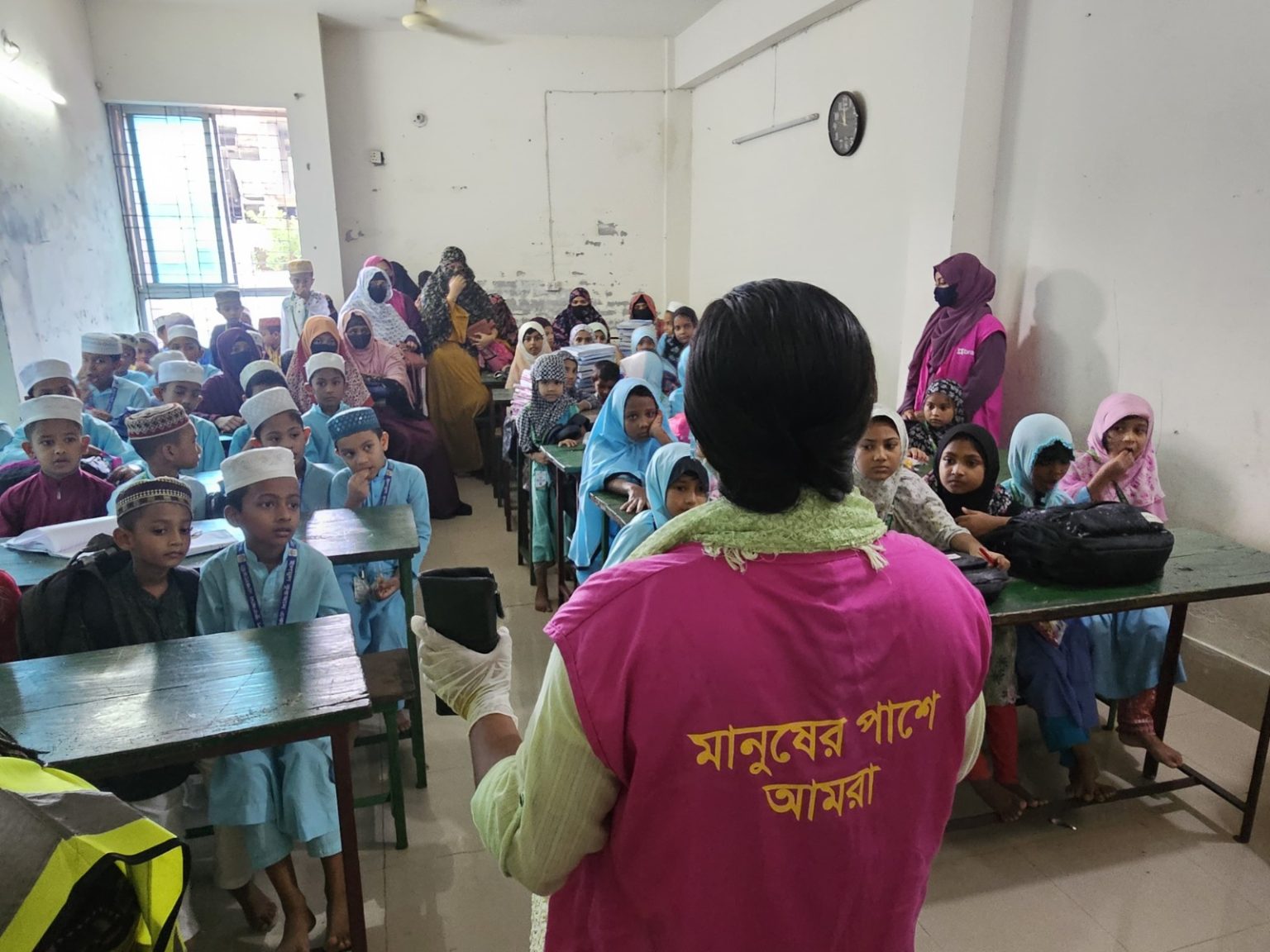The dengue outbreak has reached a critical point, with the southern coastal district of Barguna emerging as the epicenter. Latest data from the Directorate General of Health Services (DGHS) reveals that one-third of all hospitalised dengue patients nationwide are from Barguna alone, prompting a large-scale emergency response from BRAC’s Health Programme.
Between May and June 2025, Barguna recorded a staggering 2,855 dengue cases, raising alarm among public health officials. Experts attribute the sharp rise in infections to irregular rainfall, soaring temperatures, unplanned water storage, and poor sanitation—conditions that have created ideal breeding grounds for Aedes mosquitoes.
In response, BRAC has launched a comprehensive emergency health intervention across key areas of Barguna, including Barguna Sadar, Patharghata, Bamna, Betagi, Amtali, and Taltali, a statement released by the largest non-government organisation said.
Teams of trained health workers and volunteers are going door-to-door conducting awareness campaigns, destroying mosquito breeding sites, and leading cleanliness drives in collaboration with local authorities and community organisations.
Since the operation began on 17 June, BRAC teams have visited 6,510 households and eliminated 2,141 active mosquito breeding sites.
“Climate change has altered the nature and seasonality of many diseases, posing new challenges for our health system,” said Dr Shayla Islam, Associate Director of BRAC Health Programme. “We are not only working to control mosquito populations but also to build community awareness, so people are better prepared to face future climate-related health risks.”
Dr Muhammad Abul Fatha, Civil Surgeon of Barguna, noted the progress: “Out of the 2,855 reported cases so far, 2,701 patients have recovered and returned home, which gives us hope. However, without consistent preventive measures, our health systems could become overwhelmed.”
Under its Climate Change and Health Project, BRAC is training field workers in integrated vector control, waste management, and sanitation awareness. The initiative aims to empower local communities to take charge of their health and respond more effectively to climate-sensitive diseases.
BRAC has pledged to continue its intervention until the dengue situation in Barguna is fully under control.
Meanwhile, one more death was reported from dengue in 24 hours till Tuesday morning, raising the number of fatalities from the mosquito-borne disease in Bangladesh to 43 this year.
During the period, 386 more patients were hospitalised with viral fever, raising the total infected case to 10,682 this year, according to the DGHS.
According to the DGHS, new cases were reported as follows: 163 Barishal Division (Out of CC), 19 in Chattogram Division (Out of CC), 16 in Khulna Division (Out of CC),8 in Mymensingh Division (Out of CC), 39 in Rajshahi Division (Out of CC), 73 Dhaka Division (Out of CC), 30 in Dhaka North City Corporation and 38 in Dhaka South City Corporation.
Last year, dengue claimed the lives of 575 people.
In 2023, 1,705 people lost their lives due to dengue, making it the deadliest year on record.
The DGHS recorded 3,21,179 dengue cases and 3,18,749 recoveries in the same year.


